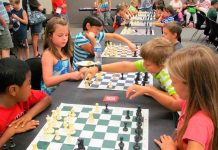Муниципальное бюджетное общеобразовательное учреждение
гимназия г. Гурьевска
Калининградской области
Косвенная речь. Чтение в твоей жизни.
урок английского языка в 8 классе
УМК М.З. Биболетовой «Enjoy English»
Автор: учитель английского языка
Беспалова Нина Николаевна
г. Гурьевск
2011г.
Цели:
-
повышение эффективности учебно-воспитательного процесса;
-
разнообразие и внедрение новых методов работы при обучении иностранному языку;
-
Повышение роли речевой инициативы учащихся как приоритета коммуникативной компетенции в обучении иностранному языку.
Задачи. Учебные:
-
формирование умений переделывать разные типы предложений из прямой речи в косвенную с использованием фреймов;
-
совершенствование навыков монологической и диалогической речи по теме
«Чтение для тебя»;
-
ознакомление с методикой проведения мини — дебат по теме «Книги в твоей жизни»;
-
учить составлять высказывание по аналогии с прочитанным с опорой на
краткий план;
-
учить применять полученные грамматические навыки по теме «Косвенная
речь» в разных типах предложений в устной речи;
-
учить выражать свою точку зрения, почему книги все еще популярны или
не популярны;
-
учить выявлять читательские интересы гостей и интерпретировать их в
косвенную речь;
-
учить читать текст с целью интерпретации его в косвенную речь и дальнейшего пересказа;
Воспитательные:
-
воспитание уважения к культуре чтения;
-
воспитание толерантности при высказывании другого мнения;
-
воспитание умения работать в коллективе (коллективного творческого мышления;
Развивающие:
-
привитие вкуса к чтению на английском языке;
-
расширение кругозора у учащихся;
-
активизация лексики по теме «Книги в твоей жизни»;
-
развитие культуры публичного выступления;
-
совершенствование навыков сценического поведения;
-
развитие творческих способностей и интерес к предмету.
Наглядные пособия и опоры: грамматические таблицы (косвенная речь), карточки, раздаточные тексты-диалоги для чтения, фреймы, декорации и костюмы для сценки
из сказки «Золушка».
ТСО: мультимедиапроектор или интерактивная доска, экран, компьютер с программой Power Point, презентация «Reading for you».
Ход урока:
I. Beginning
Introduction of the lesson
(открывается слайд №1 презентации)
Teacher (T):Good morning, my dear students! I am glad to see you. Take your seats, please! Today we are going to speak about reading books. But let’s begin with grammar. I mean Reported Speech.
II. Follow – up
Frames in the Reported Speech
(открывается слайд №2 презентации)
1) T: Read the statements and change them into Reported Speech using the frame.
(данный «фрейм», как и все последующие, учитель придумал как основной образец, рамку или формулу для учеников, чтобы научить правильно согласовывать время в косвенной речи. Стрелка возле сказуемого означает, что необходимо изменить его. Как правило, ученики 7 класса справляются с такими заданиями хорошо, благодаря таким «фреймам».)
-
П С↓ Д Ом Овр
Pupil1 (P1): (читает предложение) They continued: “We’ll go to the seaside next week”.
P2: (переделывает предложение в косвенную речь)They continued they would go to the seaside the following week.
P3: The girl apologized: “I am late”.
P4: The girl apologized that she was late.
P5: Martin thought: “We had a wonderful party yesterday”.
P6: Martin thought they had had a wonderful party the day before.
T: Very good, children.
(открывается слайд №3 презентации)
-
to + V
Т: Look at the sentences in the Imperative Mood and at the frame. Make all necessary changes, please!
P7: Tom advised: “Read this book!”
P8: Tom advised to read that book.
P9: Ann asked: “Build these houses!”
P10: Ann asked to build those houses.
P11: The teacher told: “Sing new songs from the very beginning!”
P12: The teacher told to sing new songs from the very beginning.
(открывается слайд №4 презентации)
-
not to+V
P1: The mother asked: “Don’t watch horror films!”
P2: The mother asked not to watch horror films.
P3: My Granny advised: “Don’t speak with your mouth full!”
P4: My Granny advised not to speak with my mouth full.
P5: His father told: “Don’t swim here!”
P6: His father told not to swim there.
T: Your answers were correct!
(открывается слайд №5 презентации)
T: Change the direct question into indirect, but first read it! Use the frame, please!
P7: Pete wanted to know: “Do you have a home library?”
P8: Pete wanted to know if I have a home library.
P9: I was interested: “Will they study next year?”
P10: I was interested if they would study the following year?”
P11: She wondered: “Did you read Kipling’s books?”
P12: She wondered if I had read Kipling’s books.
(открывается слайд №6 презентации)
-
Why П С ↓ Д Ом Овр
Т: Look at the frame of the special question, please! Use it in your reported questions.
P1: Sam was interested: “What modern detective writers have you read?”
P2: Sam was interested what modern detective writers I had read?”
P3: She wanted to know: “Where did you buy adventure stories?”
P4: She wanted to know where I had bought adventure stories.
P5: I asked: “Which book will you recommend me to read?”
P6: I asked which book he would recommend me to read.
Exercise pause
T: Let’s play!
(ученикам предлагается поделиться на две группы. Каждому человеку из первой группы учитель раздает карточки с глаголами на английском языке, а ученикам второй группы – глаголы на русском языке. Группы встают напротив, каждый ученик находит соответствия английского и русского эквивалента, подходят друг к другу, читают, что написано на карточках, садятся на места. Количество карточек зависит от числа учеников в группе. Например:
-
to offer
знать
to apologize
отвечать
to know
интересоваться
to reply
извиняться
to advise
советовать
to confess
приглашать
to add
объяснять
to explain
отрицать
to deny
добавлять
to continue
продолжать
to be interested in
предлагать
to invite
признаваться
Ученик с карточкой «to invite» должен подойти к ученику с карточкой «приглашать». Они читают английский и русский эквивалент, садятся на места).
Work on reading
T: Children, do you like reading fairy – tales?
P1: Yes, I do.
T: Why?
P1: Because they always have happy end.
T: You are right. And I’ve got a surprise for you. Now you’ll watch a short scene from the famous fairy – tale “Cinderella”.
(открывается слайд №8 презентации)
(ученики смотрят короткую сценку на 5 – 7 минут из сказки «Золушка», о том, как ее сестры собираются на бал. Ее показывают ребята из английского театра или те, с кем учитель занимается внеклассной работой. Можно выбрать любое другое произведение).
Т: Thank you very much indeed. Children, how did you like it?
P1: I liked it very much because the play was superb.
P2: “Cinderella” is my favourite fairy – tale. And this scene ended happily.
(учитель раздает ученикам тексты с конечным диалогом из только что просмотренной сцены)
Cinderella:What can I do? I have no new clothes. I can’t go to the ball. It’s 9 o’clock. The ball is starting. Who can help me?
Fairy: I can help you , Cinderella.
Cinderella: But who are you?
Fairy: I am your Fairy Godmother. Tell me, what is your problem?
Cinderella: Oh, Fairy Godmother, I can’t go to the ball. And I want to!
Fairy: Where are your sisters? Give me that box. One, two, three! Here is your carriage, one horse and your driver! You can go to the ball!
Cinderella: But my clothes! I can’t wear these!
Fairy: M-m-m, no, you can’t. Close your eyes! One, two, three! Open your eyes!
Cinderella: These clothes are beautiful!
Fairy: And so you are! You can go to the ball and have a good time!
Cinderella: Thank you, Fairy Godmother!
Fairy: Remember one thing! You must be back home before 12 o’clock!
T: Read the text, try to understand it. I give you 2 or 3 minutes.
(ученики просматривают текст, но делают это легко, поскольку только что видели отрывок из сказки)
T: Children, put sentences from direct into indirect speech. Use the list of the verbs.
(открывается слайд №7 презентации)
(ученики по цепочке переделывают часть сценки (см. диалог выше)
P1: Cinderella thought what she could do.
P2: Cinderella knew she had no clothes and couldn’t go to the ball.
P3: She continued it was 9 o’clock and the ball was starting.
P4: The girl wondered who could help her.
P5: Fairy appeared and answered she could.
P6: Cinderella wanted to know who that strange woman was.
P7: Fairy explained she was Cinderella’s Fairy Grandmother and she asked what Cinderella’s problem was.
P8: Cinderella explained that she wanted go to the ball but she couldn’t.
P9: Fairy wanted to know where her sisters were and asked to give her that box. Then fairy counted from one to three and showed Cinderella her carriage, a horse and a driver. She invited Cinderella to go to the ball.
P10: Cinderella confessed she had no clothes to go to the ball.
P11: Fairy counted from one to three and Cinderella appeared in a beautiful dress.
P12: Fairy asked Cinderella to remember one thing: the girl had to be back home before 12 o’clock.
P13: Cinderella thanked her Fairy Godmother.
(отрывок можно взять любой: короче или длиннее, труднее или легче, учитель выберет сам в зависимости от уровня подготовки учеников и от степени отработки темы «Косвенная речь»)
T: To my mind, we are ready to retell the text using the plan, aren’t we?
P: Yes, we are.
Oral practice
(открывается слайд №9 презентации)
T: Then look at the plan and do it.
(можно спросить одного ученика или послушать пересказ по цепочке. Эта должна быть краткая интерпретация)
P: The passage is from the book “Cinderella”. It is written by Sharl Perro. The main characters are Cinderella, her sisters, her stepmother and her Fairy Godmother. The author starts telling us about King’s invitation to the ball. Everybody are going there but Cinderella isn’t. She is eager to dance there but her stepmother gives her a lot of work to do. Suddenly Cinderella’s Fairy Godmother appears and helps her with a beautiful dress, a carriage and a driver. In conclusion we see a happy end: Cinderella goes to the ball. I found the text interesting because I like reading fairy-tales. I always return to my childhood.
T: Thank you very much for your retelling. Children, I am sure you are fond of reading fairy-tales. And let’s speak about other books. What is reading for you? Maybe it’ll help you.
(учитель открывает слайд №10 презентации)
P1: It’s very interesting!
P2: It’s boring!
P3: It’s admiring!
P4: It’s rather dull!
P5: It’s enjoyable!
P6: It’s awful!
P7: It’s rather exciting!
P8: It’s not interesting!
(образцы даны как опоры для слабых учеников, сильные всегда выдумают и скажут что-то свое)
T: I see some of you like reading, but others don’t. So we have two groups: the first one will think about arguments “for” reading, the second group will give their arguments “against”. You may use the following expressions or think over about yours. I give you three minutes.
(учитель открывает слайд №11 презентации)
T: Let’s begin our debates!
P1: As for me, I read different kinds of books: short stories, science fiction, love stories, adventures, detective stories.
P2: How can you read them? It’s boring! They are rather thick! It takes you too much time!
P3: Never mind! While reading I imagine myself on the character’s place in different situations. It’s so intriguing!
P4: In fact, I prefer watching TV. It’s much more interesting and moving than reading books.
P5: But it’s important to find humour or irony in books and realize how rich the language of books is! You won’t be able to do it on TV. Books are another pair of shoes!
P6: Why should I follow stylistic devices? I am lazy and I hate reading!
P7: Poor you! As for Literature classes, you should know characters and their actions perfectly, shouldn’t you?
P8: I use a short variant of the book or a computer book version.
P9: It’s bad to read a shortened variant of the novel, but as for CDs, I sometimes use them and find it convenient.
P10: At last I can hear a suitable opinion! Don’t forget that CDs are much more popular with teenagers of our generation than printed books.
P11: OK! I agree with you.
P12: Glad to hear that!
T: And I am happy that you agree with each other.
(дебаты должны закончиться согласием обеих сторон, если это трудно сделать самим ученикам, учитель помогает наводящими вопросами)
Т: Children, the last task for you will be: come up to our guests and ask one or two questions about reading books.
(ученики по два человека подходят к гостям и задают самые разные вопросы, например: Do you like reading? Do you have your home library? What is your favourite writer? Do you read CD books? И т. д.)
T: Make direct answers of your guests into reported.
(ученики по очереди переводят ответы гостей в косвенную речь, например,
P1: My guest answered that she liked reading detective novels. She added she mostly read in the evenings… и т. д.)
III. Rounding – off
T: Thank you for the lesson, my dear students! You were very active, attentive and bright. I enjoyed your work at the lesson. Your marks are…
(учитель выставляет оценки, комментируя их, затем дает домашнее задание)
Т: The lesson is over. Good bye!
(выходя из класса, ребята оставляют на листах смайлики, если им понравился урок или нет)
Использованная литература:
1) Биболетова М.З. Учебник английского языка для 7 классов общеобразовательных учреждений.- Обнинск: Титул, 2007.
2) Биболетова М.З. Книга для учителя.- Обнинск: Титул, 2005.
3) Верещагина И.Н. Книга для чтения в IV классе школ с углубленным изучением английского языка.- М.: Просвещение, 1995.





